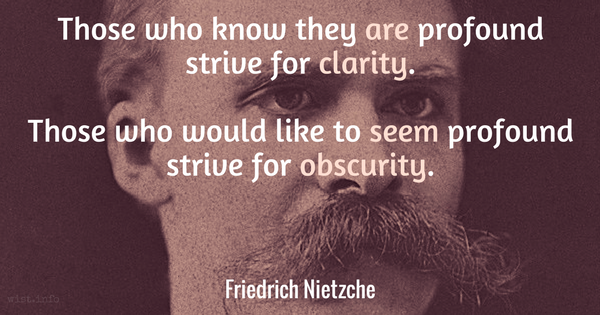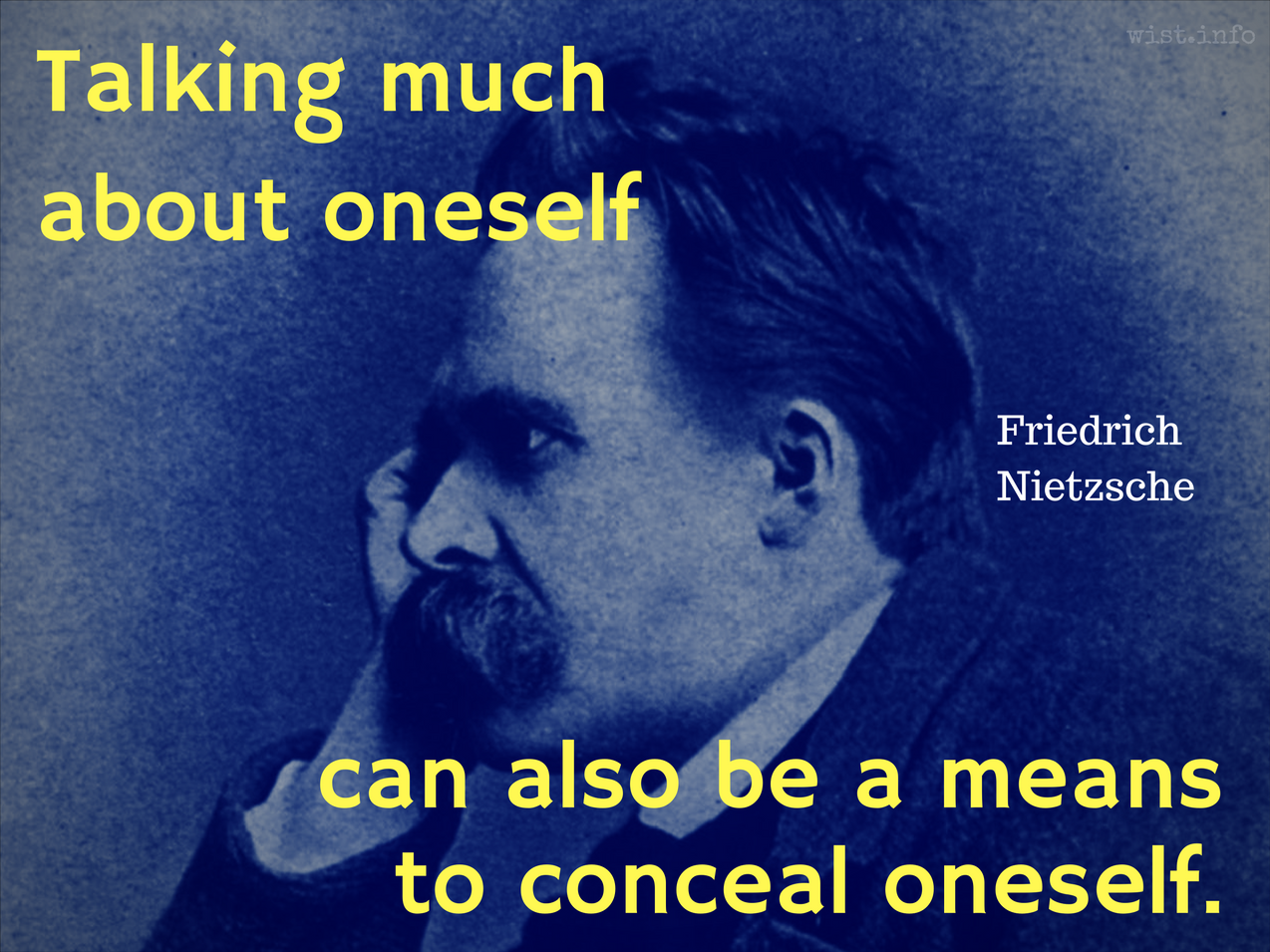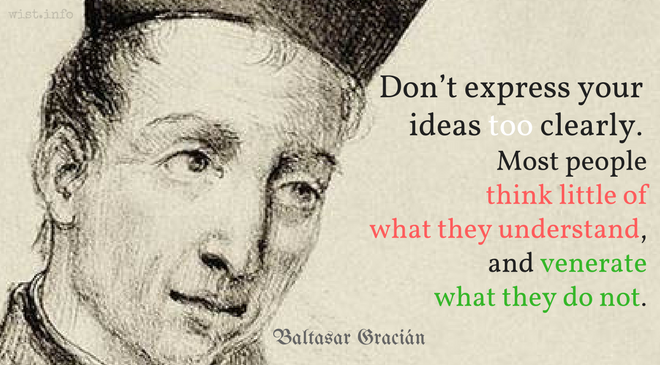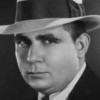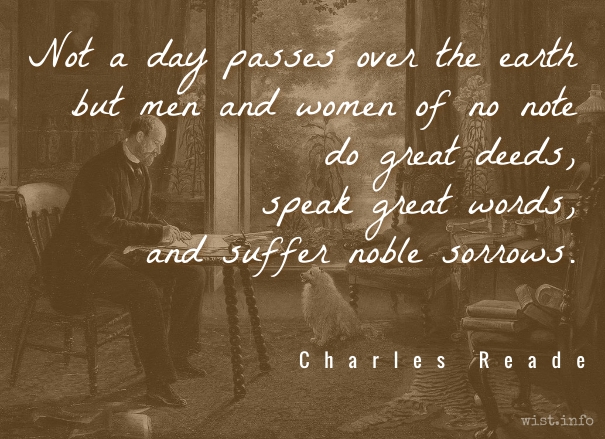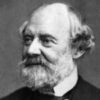When I think of antiquity, the detail that frightens me is that those hundreds of millions of slaves on whose backs civilization rested generation after generation have left behind them no record whatever. We do not even know their names. In the whole of Greek and Roman history, how many slaves’ names are known to you? I can think of two, or possibly three. One is Spartacus and the other is Epictetus. Also, in the Roman room at the British Museum there is a glass jar with the maker’s name inscribed on the bottom, “Felix fecit.” I have a vivid mental picture of poor Felix (a Gaul with red hair and a metal collar round his neck), but in fact he may not have been a slave; so there are only two slaves whose names I definitely know, and probably few people can remember more. The rest have gone down into utter silence.
George Orwell (1903-1950) English journalist, essayist, writer [pseud. of Eric Arthur Blair]
Essay (1942-08), “Looking Back on the Spanish War, ch. 4, Such, Such Were the Joys, essay 8 (1953)
(Source)
Quotations about:
obscurity
Note not all quotations have been tagged, so Search may find additional quotes on this topic.
I yesterday passed a whole afternoon in the churchyard, the cloisters, and the church, amusing myself with the tombstones and inscriptions that I met with in those several regions of the dead. Most of them recorded nothing else of the buried person, but that he was born upon one day, and died upon another: the whole history of his life being comprehended in those two circumstances, that are common to all mankind. I could not but look upon these registers of existence, whether of brass or marble, as a kind of satire upon the departed persons; who had left no other memorial of them, but that they were born and that they died. They put me in mind of several persons mentioned in the battles of heroic poems, who have sounding names given them, for no other reason but that they may be killed, and are celebrated for nothing but being knocked on the head.
Joseph Addison (1672-1719) English essayist, poet, statesman
Essay (1711-03-30), “Thoughts in Westminster Abbey,” The Spectator, No. 26
(Source)
CASSIUS: Did Cicero say anything?
CASCA: Ay, he spoke Greek.
CASSIUS: To what effect?
CASCA Nay, an I tell you that, I’ll ne’er look you i’ th’ face again. But those that understood him smiled at one another and shook their heads. But for mine own part, it was Greek to me.
William Shakespeare (1564-1616) English dramatist and poet
Julius Caesar, Act 1, sc. 2, l. 289ff (1.2.289-295) (1599)
(Source)
Not origin, but likely popularizer of the phrase, "It's Greek to me." Similar phrases had been around since Roman days, and through the Medieval period. Many languages/cultures have similar idioms.
There have been as great Souls unknown to fame as any of the most famous.
Benjamin Franklin (1706-1790) American statesman, scientist, philosopher, aphorist
Poor Richard (1734 ed.)
(Source)
My dear brothers, when you hear the progress of enlightenment extolled, never forget that the devil’s cleverest trick is to persuade you that he does not exist!
[Mes chers frères, n’oubliez jamais, quand vous entendrez vanter le progrès des lumières, que la plus belle des ruses du diable est de vous persuader qu’il n’existe pas!]
Charles Baudelaire (1821-1867) French poet, essayist, art critic
Le Spleen de Paris (Petits Poèmes en Prose), No. 29 “The Generous Gambler [Le Joueur généreux]” (1869) [tr. Kaplan (1989)]
(Source)
A warning by a Parisian preacher, as reported by the Devil himself. Used in movie The Usual Suspects (1995) as "The greatest trick the Devil ever pulled was convincing the world he didn't exist."
(Source (French)). Alternate translations:My dear brethren, never forget, when you hear the progress of wisdom vaunted, that the cleverest ruse of the Devil is to persuade you he does not exist!
[tr. Shipley (<1919) "The Generous Player"]My dear brethren, never forget, when you hear boasts about the progress of enlightenment, that the finest ruse of the devil is to persuade you that he does not exist!
[tr. Hamburger (1946) "The Generous Gamester"]My dear brothers, never forget when you hear people boast of our progress in enlightenment, that one of the devil's best ruses is to persuade you that he does not exist!
[tr. Varèse (1970)]The Devil's subtlest ruse is to convince us that he doesn't exist.
[tr. McGowan (1993)]Dear brethren, never forget that the finest of all the devil's tricks is to persuade you that he doesn't exist.
[tr. Lerner (2003)]My dear brethren, do not ever forget, when you hear the progress of lights praised, that the loveliest trick of the Devil is to persuade you that he does not exist!
[Source]
If the mind is to emerge unscathed from this relentless struggle with the unforeseen, two qualities are indispensable: first, an intellect that, even in the darkest hour, retains some glimmerings of the inner light which leads to truth; and second, the courage to follow this faint light wherever it may lead.
[So sind ihm zwei Eigenschaften unentbehrlich: einmal ein Verstand, der auch in dieser gesteigerten Dunkelheit nicht ohne einige Spuren des inneren Lichts ist, die ihn zur Wahrheit führen, und dann Mut, diesem schwachen Lichte zu folgen.]
Karl von Clausewitz (1780-1831) Prussian soldier, historian, military theorist
On War [Vom Kriege], Book 1, ch. 3 “On Military Genius [Der Kriegerische Genius]” (1.3) (1832) [tr. Howard & Paret (1976)]
(Source)
(Source (German)). Alternate translations:Now, if it is to get safely through this perpetual conflict with the unexpected, two qualities are indispensable: in the first place an understanding which, even in the midst of this intense obscurity, is not without some traces of inner light, which lead to the truth, and then the courage to follow this faint light.
[tr. Graham (1873)]Now if it is to get safely through this continual conflict with the unexpected, two qualities are indispensable: in the first place, an intellect which even in the midst of this intensified obscurity is not without some traces of inner light which lead to the truth, and next, courage to follow this faint light.
[tr. Jolles (1943)]
Celebrity is just obscurity biding its time.
Real power begins where secrecy begins.
Hannah Arendt (1906-1975) German-American philosopher, political theorist
The Origins of Totalitarianism, Part 3, ch. 12 “Totalitarianism in Power,” sec. 1 (1951)
(Source)
There’s nothing like studying the bestseller lists of bygone years for teaching an author humility. You’ve heard of the ones that got filmed, normally. Mostly you realize that today’s bestsellers are tomorrow’s forgotten things.
Neil Gaiman (b. 1960) British author, screenwriter, fabulist
“This Much I Know,” The Guardian (2017-08-05)
(Source)
Night makes no difference ‘twixt the priest and clerk;
Joan as my lady is as good i’ th’ dark.Robert Herrick (1591-1674) English poet
“No Difference i’ th’ Dark,” Hesperides, # 864 (1648)
(Source)
Those who know they are profound strive for clarity. Those who would like to seem profound strive for obscurity. For the crowd believes that if it cannot see to the bottom of something it must be profound. It is timid and dislikes going into the water.
[Tief sein und tief scheinen. — Wer sich tief weiss, bemüht sich um Klarheit; wer der Menge tief scheinen möchte, bemüht sich um Dunkelheit. Denn die Menge hält Alles für tief, dessen Grund sie nicht sehen kann: sie ist so furchtsam und geht so ungern in’s Wasser.]
Friedrich Nietzsche (1844-1900) German philosopher and poet
The Gay Science [Die fröhliche Wissenschaft], Book 3, § 173 (1882) [tr. Kaufmann (1974)]
(Source)
Also known as La Gaya Scienza, The Joyful Wisdom, or The Joyous Science. (Source (German)). Alternate translations:To Be Profound and to Appear Profound. -- He who knows that he is profound strives for clearness; he who would like to appear profound to the multitude strives for obscurity. The multitude thinks everything profound of which it cannot see the bottom; it is so timid and goes so unwillingly into the water.
[tr. Common (1911)]Being Deep and Seeming Deep. -- Those who know they are deep strive for clarity. Those who would like to seem deep to the crowd strive for obscurity. For the crowd takes everything whose ground it cannot see to be deep; it is so timid and so reluctant to go into the water.
[tr. Nauckhoff (2001)]Being Profound and Being Thought Profound -- Whoever knows that he is profound strives for clarity; whoever would like the crowd to think he is profound strives for obscurity. The reason for this is that the crowd thinks something is profound whenever it cannot see to the bottom of it; it is afraid of the water and hates to get its feet wet.
[tr. Hill (2018)]Being Deep and Appearing Deep -- Whoever knows he is deep, strives for clarity; whoever would like to appear deep to the crowd, strives for obscurity. For the crowd considers anything deep if only it cannot see to the bottom: the crowd is so timid and afraid of going into the water.
[Source]Whoever knows himself to be deep strives for clarity; whoever wants to appear deep to the masses strives for obscurity. For the masses consider anything to be deep that they cannot see the bottom of.
[Source]
Don’t express your ideas too clearly. Most people think little of what they understand, and venerate what they do not. […] Many praise without being able to say why. They venerate anything hidden or mysterious, and they praise it because they hear it praised.
[No allanarse sobrado en el concepto. Los más no estiman lo que entienden, lo que no perciben lo veneran. […] Alaban muchos lo que, preguntados, no saben dar razón. ¿Por qué? Todo lo recóndito veneran por misterio y lo celebran porque oyen celebrarlo.]
Baltasar Gracián y Morales (1601-1658) Spanish Jesuit priest, writer, philosopher
The Art of Worldly Wisdom [Oráculo Manual y Arte de Prudencia], § 253 (1647) [tr. Maurer (1992)]
(Source)
(Source (Spanish)). Alternate translations:Not to be too intelligible. Most part do not esteem what they conceive, but admire what they understand not. [...] Many praise that which they can give no reason for, when it is asked them: because they reverence as a mystery all that is hard to be comprehended, and extoll it, by reason they hear it extolled.
[Flesher ed. (1685)]Do not Explain overmuch. Most men do not esteem what they understand, and venerate what they do not see. [...] Many praise a thing without being able to tell why, if asked. The reason is that they venerate the unknown as a mystery, and praise it because they hear it praised.
[tr. Jacobs (1892)]A Bit Vague. For most men have low regard for what they understand, and venerate only what is beyond them. [...] Many praise, but if asked can give no reason: Why? for they revere all that is hidden because mysterious, and they sing its praises, because they hear its praises being sung.
[tr. Fischer (1937)]
I could name all day, those women I deem great in Greece alone and the records would scarcely be complete. And what of Joan of Arc and Emma Goldman? Kate Richards O’Hare and Sarah Bernhardt? Katherine the Great and Elizabeth Barrett Browning? H.D. and Sara Teasdale? Isibella of Spain who pawned her gems that Columbus might sail, and Edna St. Vincent Millay? And that queen, Marie, I think her name was, of some small province — Hungary I believe — who fought Prussia and Russia so long and so bitterly. And Rome — oh, the list is endless there, also — most of them were glorified harlots but better be a glorified harlot than a drab and moral drone, such as the text books teach us woman should be. Woman have always been the inspiration of men, and just as there are thousands of unknown great ones among men, there have been countless women whose names have never been blazoned across the stars, but who have inspired men on to glory.
Perfect valour is to behave, without witnesses, as one would act were all the world watching.
[La parfaite valeur est de faire sans témoins ce qu’on serait capable de faire devant tout le monde.]
François VI, duc de La Rochefoucauld (1613-1680) French epigrammatist, memoirist, noble
Réflexions ou sentences et maximes morales [Reflections; or Sentences and Moral Maxims], ¶216 (1665-1678) [tr. FitzGibbon (1957)]
(Source)
(Appeared in the 1st (1665) ed. as the similar:[La pure valeur, s’il y en avoit, seroit de faire sans témoins ce qu’on est capable de faire devant le monde.]
(Source (French)). Other translations:Pure Valour, if there were any such thing, would consist in the doing of that without witnesses, which it were able to do, if all the world were to be spectators thereof.
[tr. Davies (1669), ¶117]True Valour would do all that, when alone, that it could do, if all the World were by.
[tr. Stanhope (1694), ¶217]Perfect valour consists in doing without witnesses all we should be capable of doing before the whole world.
[pub. Donaldson (1783), ¶431; ed. Lepoittevin-Lacroix (1797), ¶207; ed. Carvill (1835), ¶367]Perfect valor is to do unwitnessed what we should be capable of doing before all the world.
[ed. Gowens (1851), ¶225]Perfect valour is to do without witnesses what one would do before all the world.
[tr. Bund/Friswell (1871), ¶216]Perfect valor accomplishes without witnesses what anyone could do before the eyes of the world.
[tr. Heard (1917), ¶221]Perfect courage consists in doing unobserved what we could do in the eyes of the world.
[tr. Stevens (1939), ¶216]Perfect courage means doing unwitnessed what we would be capable of with the world looking on.
[tr. Kronenberger (1959), ¶216]Perfect valor consists in doing without witnesses what one would be capable of doing before the world at large.
[tr. Tancock (1959), ¶216]Perfect bravery is being able to do without witnesses what one would be able to do in front of everyone.
[tr. Siniscalchi (c. 1994)]Perfect courage is to do without witnesses what one would do before all the world.
[tr. Whichello (2016) ¶216]Perfect courage is to do without witnesses what one would be capable of doing with the world looking on.
[Source]
There is nothing more dreadful to an author than neglect, compared with which reproach, hatred, and opposition are names of happiness.
Samuel Johnson (1709-1784) English writer, lexicographer, critic
The Rambler, #2 (24 Mar 1750)
(Source)
The poor man’s conscience is clear; yet he is ashamed. His character is irreproachable, yet he is neglected and despised. He feels himself out of the sight of others, groping in the dark. Mankind takes no notice of him: he rambles and wanders unheeded. In the midst of a crowd, at church, in the market, at a play, at an execution or coronation, he is in as much obscurity as he would be in a garret or a cellar. He is not disapproved, censured, or reproached: he is only not seen. This total inattention is to him, mortifying, painful and cruel. […] To be wholly overlooked, and to know it, are intolerable.
John Adams (1735-1826) American lawyer, Founding Father, statesman, US President (1797-1801)
Essay (1790), “Discourses on Davila: A Series of Papers on Political History,” No. 5, Gazette of the United States
(Source)
Some of them left a name behind them, so that their praises are still sung. While others have left no memory, and disappeared as though they had not existed, they are now as though they had never been, and so too, their children after them.
The Bible (The Old Testament) (14th - 2nd C BC) Judeo-Christian sacred scripture [Tanakh, Hebrew Bible], incl. the Apocrypha (Deuterocanonicals)
Sirach (Ecclesiasticus) 44: 8-9 [JB (1966)]
(Source)
Alternate translations:There be some of them, that have left a name behind them, that their praises might be reported. And some there be, which have no memorial; who are perished, as though they had never been; and are become as though they had never been born; and their children after them.
[KJV (1611)]They that were born of them have left a name behind them, that their praises might be related: And there are some, of whom there is no memorial: who are perished, as if they had never been: and are become as if they had never been born, and their children with them.
[DRA (1899)]Some of them left a reputation, and people still praise them today. There are others who are not remembered, as if they had never lived, who died and were forgotten, they, and their children after them.
[GNT (1976)]Some of them have left behind a name, so that others declare their praise. But of others there is no memory; they have perished as though they had never existed; they have become as though they had never been born, they and their children after them.
[NRSV (1989 ed.)]
The whole of life is just like watching a [film], he thought. Only it’s as though you always get in ten minutes after the big picture has started, and no one will tell you the plot, so you have to work it all out yourself from the clues. And you never, never get a chance to stay in your seat for the second house.
The great enemy of clear language is insincerity. When there is a gap between one’s real and one’s declared aims, one turns as it were instinctively to long words and exhausted idioms, like a cuttlefish spurting out ink.
George Orwell (1903-1950) English journalist, essayist, writer [pseud. of Eric Arthur Blair]
Essay (1946-04), “Politics and the English Language,” Horizon Magazine
(Source)
CALVIN: I used to hate writing assignments, but now I enjoy them. I realized that the purpose of writing is to inflate weak ideas, obscure poor reasoning, and inhibit clarity. With a little practice, writing can be an intimidating and impenetrable fog!
If you would escape moral and physical assassination, do nothing, say nothing, be nothing — court obscurity, for only in oblivion does safety lie.
Elbert Hubbard (1856-1915) American writer, businessman, philosopher
Little Journeys to the Homes of American Statemen, “William H. Seward” (1916)
(Source)
Variants show up elsewhere in Hubbard's writings and and his quote epigrams.Often misattributed to Aristotle.
- To escape criticism -- do nothing, say nothing, be nothing.
- To avoid unkind criticism: do nothing, say nothing, be nothing.
- There is only one way to avoid criticism: do nothing, say nothing and be nothing.
Oft before Agamemnon brave men warred;
But all unwept they lie in endless night,
Lacking, to deck their deeds with light,
Song of a heaven-taught bard.[Vixere fortes ante Agamemnona
multi; sed omnes illacrimabiles
urgentur ignotique longa
nocte, carent quia vate sacro.]Horace (65–8 BC) Roman poet, satirist, soldier, politician [Quintus Horatius Flaccus]
Odes [Carmina], Book 4, # 9, l. 25ff (4.9.25-28) (23 BC) [tr. Marshall (1908)]
(Source)
"To Lollius." See also Gray.
(Source (Latin)). Alternate translations:Men slasht ere Diomed was made:
But all are in oblivion drown'd,
And put unmourn'd into the ground,
For lack of Sacred Poets aid.
[tr. Fanshawe; ed. Brome (1666)]Before that Age a thousand liv'd,
And sent surprising Glories forth,
But none the silent Grave surviv'd;
In Night their Splendor's gone,
They fell, unmourn'd, unknown;
Because no Verse embalms their Worth.
[tr. Creech (1684)]Before Atrides men were brave:
But ah! oblivion, dark and long,
Has lock'd them in a tearless grave,
For lack of consecrating song.
[tr. Conington (1872)]Many brave men lived before Agamemnon: but all of them, unlamented and unknown, are overwhelmed with endless obscurity, because they were destitute of a sacred bard.
[tr. Smart/Buckley (1853)]Many, many have lived, who were valiant in fight,
Before Agamemnon; but all have gone down,
Unwept and unknown, in the darkness of night,
For lack of a poet to hymn their renown.
[tr. Martin (1864)]Many brave men have lived long before Agamemnon,
But o’er them darkly presses the slumber eternal;
All unwept and unknown, wanting Him --
Everlastingly sacred -- the Bard!
[tr. Bulwer-Lytton (1870)]Many brave men lived before Agamemnon, but all like crushed under eternal obvlivion, unknown to us and unwept by us, because no bard hath immortalized them.
[tr. Elgood (1893)]Ere Agamemnon saw the light
There lived brave men: but tearless all,
Enfolded in eternal night,
For lack of sacred minstrels, fall.
[tr. Gladstone (1894)]Brave men before the great Agamemnon's time
Liv'd many, but in tearless oblivion
And night, unknown and unlamented
Lie they, for want of a sacred poet
[tr. Phelps (1897)]Prior to Agamemnon lived many who were brave,
But all unwept, unknown.
In endless night are plunged because
They lack a bard divine.v [tr. Garnsey (1907)]Many heroes lived before Agamemnon ; but all are overwhelmed in unending night, unwept, unknown, because they lack a sacred bard.
[tr. Bennett (Loeb) (1912)]Before the age of Agamemnon wight
Lived many a hero, but unwept, unknown,
Because no sacred bard hymned their renown,
They, one and all, lie whelmed in endless night.
[tr. Mills (1924)]Many brave men lived before Agamemnon,
But all went down unmourned, unhouured, into the smothering darkness
For lack of a minstrel to be their glory-giver.
[tr. Michie (1963)]There were heroes before Agamemnon
Was born -- but who knows them? Unmourned,
They lie buried in eternal darkness,
Sung by no sacred song.
[tr. Raffel (1983)]Heroes have lived before Agamemnon lived,
But all of them are lost somewhere in the night,
Unwept, unkonwn, unless they had a poet
To tell what was their story.
[tr. Ferry (1997)]Many brave men
Llived before Agamemnon.
But all of them, unwept and unknown,
are shrouded in eternal night
for lack of a sacred bard.
[tr. Alexander (1999)]Many brave men lived before Agamemnon:
but all are imprisoned in unending night,
all of them are unwept and unknown,
because of the lack of a sacred bard.
[tr. Kline (2015)]
Full many a gem of purest ray serene
The dark, unfathomed caves of ocean bear;
Full many a flower is born to blush unseen,
And waste its sweetness on the desert air.Thomas Gray (1716-1771) English poet
“Elegy Written in a Country Churchyard,” st. 14, l. 53ff (1751)
(Source)
The greatest trick the devil ever pulled was convincing the world he didn’t exist.
Christopher McQuarrie (b. 1968) American screenwriter, director
The Usual Suspects [Kint] (1995)
Kint gives this line twice: first about an hour into the movie, and second as one of its final lines.
See Baudelaire.
Words, like glass, obscure when they do not aid vision.
[Les mots, comme les verres, obscurcissent tout ce qu’ils n’aident pas à mieux voir.]
Joseph Joubert (1754-1824) French moralist, philosopher, essayist, poet
Pensées [Thoughts], ch. 22 “Du Style [On Style],” ¶ 25 (1850 ed.) [tr. Lyttelton (1899), ch. 21, ¶ 15]
(Source)
(Source (French)). Alternate translations:Words, like glass, darken whatever they do not help us to see.
[tr. Attwell (1896), ¶ 304]Words, like eyeglasses, obscure everything they do not make clear.
[Source]











